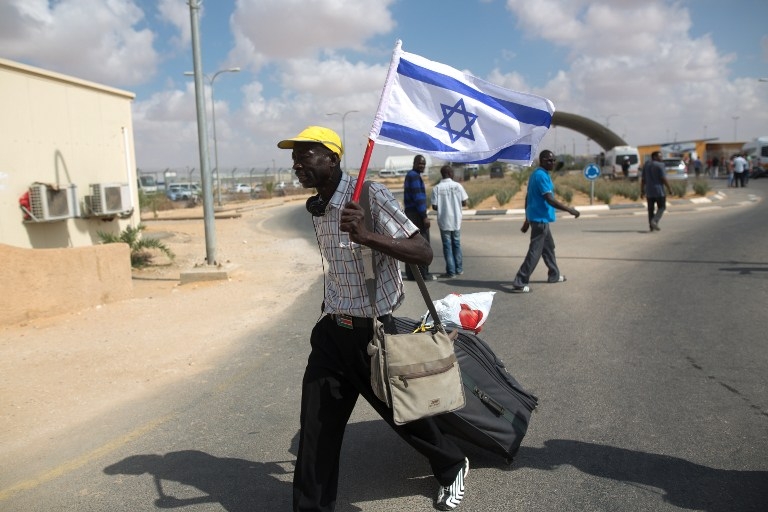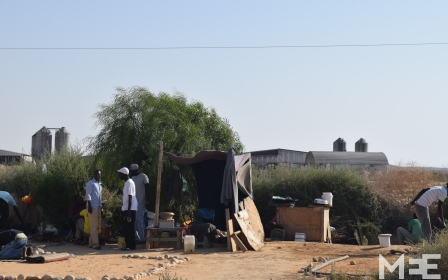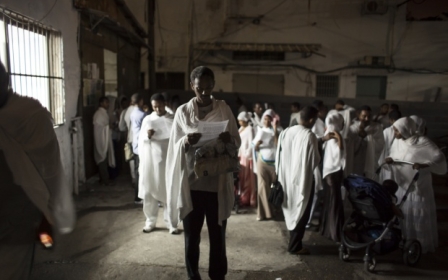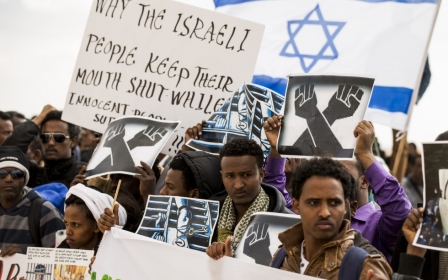Israel releases hundreds of asylum-seekers from desert facility

Israel on Tuesday began releasing hundreds of African migrants from a detention centre in the middle of the desert after a court order, but the asylum-seekers were barred from entering two cities.
A recent court decision ordered Israel to release the illegal migrants held for more than a year from the Holot detention facility in the Negev desert, a ruling affecting 1,178 of the asylum-seekers.
Israel released an initial 750 on Tuesday in small groups, while the remainder will be freed on Wednesday, said Sivan Weizman, a prison service spokeswoman.
Facing hostility from many residents and fearing tensions, authorities have barred them from entering Tel Aviv and the southern city of Eilat, where African migrant communities have sprung up.
As in other parts of the world, illegal migration has become a high-profile issue in Israel, with right-wing politicians calling for action to limit it and rights groups urging the government to accept asylum-seekers from countries such as Eritrea.
A number of those released from Holot on Tuesday waited at nearby bus stops in search of a ride anywhere.
"We don't know where to go, where we're going to sleep tonight," said Salah, a 33-year-old Sudanese man who has been in Israel for nine years, including 20 months at the detention centre.
"They gave us a paper that says 'prohibited from going to Eilat or Tel Aviv', but that's where we know people. I don't have money to rent an apartment. Where do I go now?"
Two weeks ago, Israel's supreme court overturned a provision of a law that would have allowed illegal immigrants to be held for up to 20 months without trial. It ruled that illegal migrants held for more than a year should be released this week.
Official figures show 45,000 illegal immigrants are in Israel, with almost all of them from Eritrea and Sudan. About two-thirds are Eritrean, with Israel reachable by land.
Many migrants, who have not been detained, live in poor areas of southern Tel Aviv, where there have been several protests over their presence.
Israel rarely grants refugee status.
New MEE newsletter: Jerusalem Dispatch
Sign up to get the latest insights and analysis on Israel-Palestine, alongside Turkey Unpacked and other MEE newsletters
Middle East Eye delivers independent and unrivalled coverage and analysis of the Middle East, North Africa and beyond. To learn more about republishing this content and the associated fees, please fill out this form. More about MEE can be found here.




